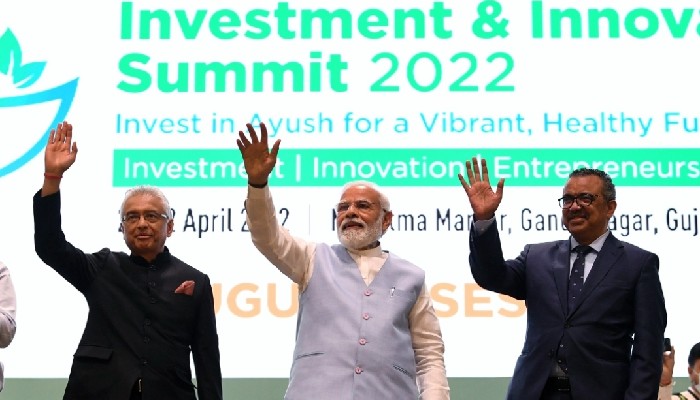Mother tongue as the medium of instruction will instill confidence in the students from poor, rural and tribal background, said the PM
Marking the completion of one year of reforms under the National Education Policy 2020, Prime Minister Narendra Modi on Thursday said, “Our future progress and growth is dependent on the level of education and direction given to our youth today.”
“I believe that is one of the bigger factors in ‘mahayagya’ of national development”, the Prime Minister added.
The Prime Minister highlighted the openness and absence of pressure in the New Education Policy. He said that there is an openness at policy level and openness is also visible in the options available to the students.
“Options like multiple entry and exit will free students from the restrictions of staying in one class and one course. Similarly, modern technology based Academic Bank of Credit systems will bring revolutionary change,” he said.
This will give confidence to the student in choosing streams and subjects. 'Structured Assessment for Analyzing Learning levels', SAFAL will take away the fear of examination. The Prime Minister reiterated that these new programmes have the capability to change India’s destiny.
Emphasizing the importance of local languages as a medium of instruction, the Prime Minister said 14 engineering colleges of 8 states are starting to impart education in 5 Indian languages: Hindi, Tamil, Telugu. Marathi and Bangla.
A tool has been developed for translating engineering courses in 11 languages. This emphasis on mother tongue as the medium of instruction will instil confidence in the students from poor, rural and tribal backgrounds.
Even in elementary education, the mother tongue is being promoted and the Vidya Pravesh progamme, launched today, will play a big role in that.
He also informed that Indian sign language, for the first time, has been accorded the status of language subject. Students will be able to study it as language also. There are more than 3 lakh students who need sign language for their education. This will give a boost to Indian sign language and will help the divyang people, said the Prime Minister
Underlining the critical role of teachers, the Prime Minister informed that from the formulation stage to implementation, teachers are an active part of the New Education Policy. “NISHTHA 2.0, launched today will provide training to teachers as per their needs and they will be able to give their suggestions to the department,” he said
On this occasion, the Prime Minister launched the Academic Bank of Credit that will provide multiple entry and exit options for students in higher education; 1st year engineering programmes in regional languages and guidelines for internationalization of higher education.
The initiatives to be launched also included Vidya Pravesh, a three month play based school preparation module for Grade 1 students; Indian Sign Language as a Subject at secondary level; NISHTHA 2.0, an integrated programme of teacher training designed by NCERT; SAFAL (Structured Assessment For Analyzing Learning Levels), a competency based assessment framework for Grades 3, 5 and 8 in CBSE schools; and a website dedicated to Artificial Intelligence. The event also witnessed the launch of National Digital Education Architecture (NDEAR) and National Education Technology Forum (NETF).
 Contact Us
Contact Us  Subscribe Us
Subscribe Us









 Contact Us
Contact Us
 Subscribe
Subscribe
 News Letter
News Letter

